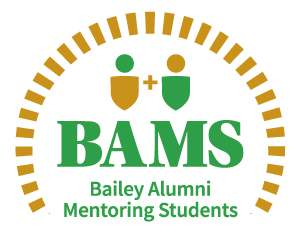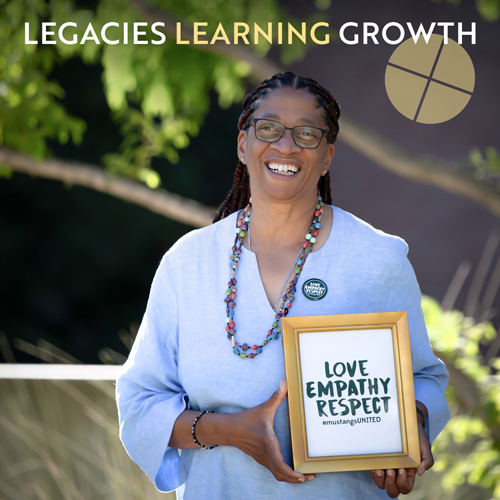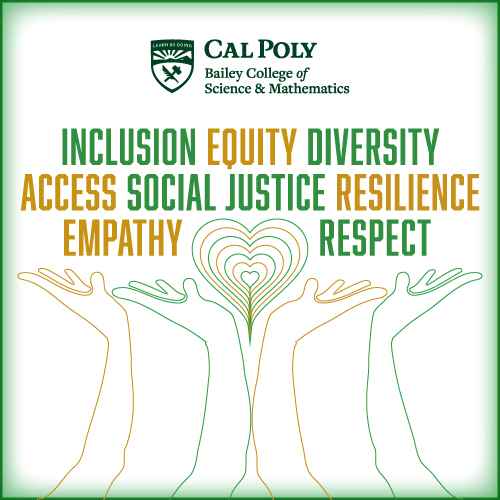At the Edge of Knowledge’: Bio Professor Earns National Student Mentorship Award
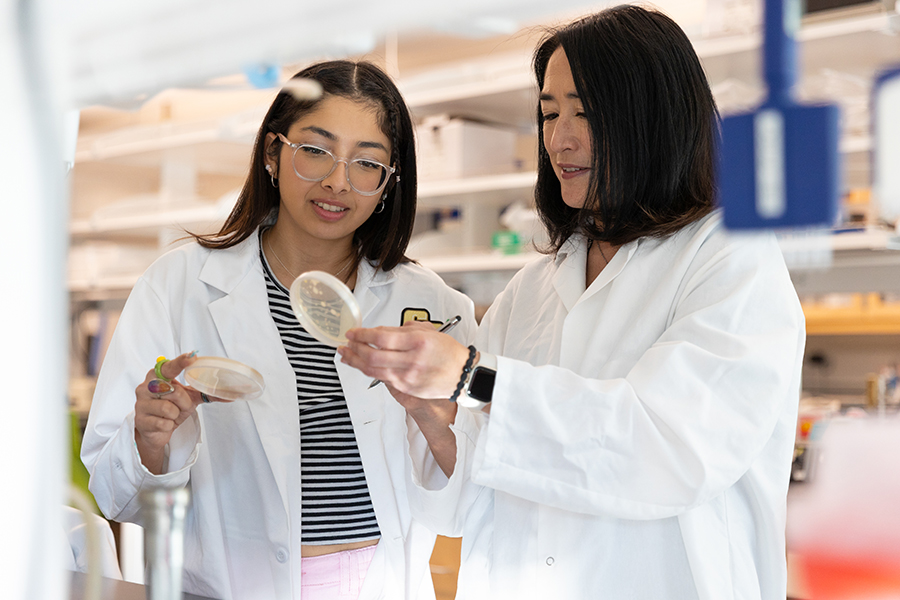 Biological Sciences Department Professor Alejandra Yep works with a student in the lab.
Biological Sciences Department Professor Alejandra Yep works with a student in the lab.
September 2025 / NEWS STORY
by Nick Wilson
A Cal Poly biological sciences faculty member who oversees multiple large research-based studies has been recognized by a national organization for her outstanding role in the mentorship of research students.
Nominated by her students, Dr. Alejandra Yep is one of three faculty members from universities nationwide to receive a Council on Undergraduate Research Biology Mentor Award.
The award honors teachers for a variety of contributions, including guidance that fits student needs and limitations, support for peer-reviewed publication, assisting students in various aspects of achievement (academic, career or personal) and how the mentor’s role promoted diversity, equity and inclusion in undergraduate research.
“I think everybody, regardless of their intention to become a researcher in their career or not, benefits from the understanding of how new knowledge is generated and how the scientific method works,” Yep said. “And there's no better way to understand something than by doing it and becoming immersed.”
The mission of the Council on Undergraduate Research (CUR) is to support and promote high-quality mentored undergraduate research, scholarship and creative inquiry.
Yep earned the CUR’s mid-career award for a faculty mentor with 10 to 19 years of experience mentoring undergraduate researchers in biology.
“Dr. Yep helped me gain confidence throughout my time at Cal Poly because she pushed me to apply for every opportunity, whether or not I felt fully qualified,” said Serena Jenson (Biological Sciences, `25), now a first-year master’s degree student in UCLA’s Department of Integrative Biology and Physiology. “Because of this, I was able to rise to several challenges, such as overcoming anxiety around public speaking at conferences and developing my abilities in science communication. Dr. Yep also implemented many types of instruction surrounding data presentation and how to spark interest in what we researched.”
Jenson, one of Yep’s student researchers, nominated her for the CUR award.
Yep, who joined Cal Poly’s Biological Sciences Department in 2014, mentors students on a variety of Learn by Doing research-based studies, including examination of urinary tract infection (UTI) pathogenesis. Yep said that in their analysis of microbes, her students research many different strains, which can produce very different results. Escherichia coli (E. coli), a common pathogen causing UTIs, for example, can behave differently depending on the strain.
“One of the beauties of working with microbes, especially with E. coli, which is very diverse, is whatever we know that applies to one strain might not apply at all to another strain,” Yep said. “Two students, for example, may be doing the exact same experiment with two different strains and get completely different results.”
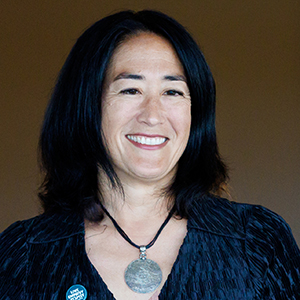
Biological Sciences Department Professor Alejandra Yep
Yep said that UTI research interests her for many reasons, including that infections can take place in healthy people without any wounds or other compromising urinary tract conditions and UTI strains are becoming increasingly resistant to antibiotics.
One of her research groups is exploring novel UTI treatment strategies related to the restriction of iron levels in the bladder as a therapy for controlling recurring infections.
“More than half of women will have at least one UTI in their lifetime, and college-age women especially are prime candidates for uncomplicated UTIs, so it's no surprise that a lot of women come to my lab interested,” Yep said. “Many either have heard so much about them or they have experienced them.”
Yep said that her lab includes work on developing entirely new assays (a test to measure certain biological characteristics or qualities) from scratch to test the compounds from his lab in collaboration with Dr. Scott Eagon.
“We work on developing good scientific procedures, such as ‘Did your controls give the expected result?’” Yep said. “’Can you trust your controls? Did you replicate this multiple times? Do you have biological replicates of the same phenomenon? Did someone else in the lab do this experiment and get the same data?’ That's how all science progresses.”
Her students are interested in a wide range of career fields, including clinical research, healthcare, biotechnology, teaching, veterinary science and more.
Yep encourages students to present their work, publish articles, apply for scholarships and grants, and to remain engaged and informed about new opportunities.
“Dr. Yep relates to her students through sharing her own experiences and challenges in her journey in academia and getting to know each of us on a personal level,” Jenson said. “She presents herself in an approachable and kind way that makes students feel really comfortable coming to her, and unafraid to ask questions.”
Besides the UTI studies, she also leads the Nuestra Ciencia Program that involves outreach by Cal Poly students to local elementary school students in bilingual microbiology education, striving to eliminate misconceptions about science and fostering supportive opportunities for students.
Yep said that she welcomes students who range from those who know they want to become researchers to others who have never enrolled in a microbiology course or come from non-science majors.
“I will bring students in and tailor my projects to something that they still can get the hang of,” Yep said. “For non-science majors it’s not going to be the same as the microbiology major that's already thinking about Ph.D. applications. But they will all get a taste of scientific research.”
Yep said that scientific study is valuable in teaching students to think through problems, address unexpected challenges and learn how to gain knowledge and to be curious.
“If you're doing scientific research, you're often going to be at the edge of knowledge and enter uncharted territory, as lofty as it sounds,” Yep said. “It's not that everybody is going to find the magic cure for a disease. But we’re adding little bits of knowledge that weren't there before. Learning how to use the tools to determine accurately what we know or don’t know is useful not just to scientists, but to anybody.”
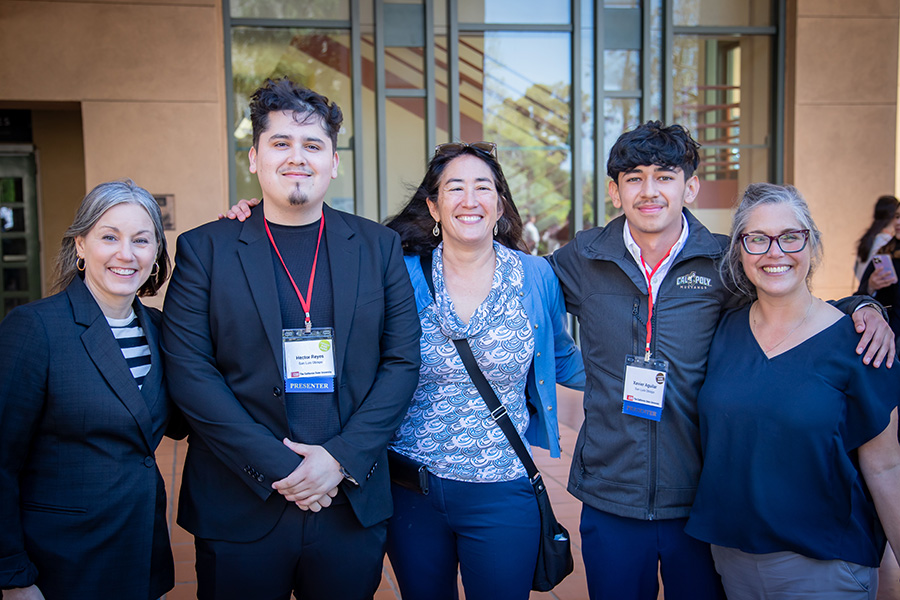 Biological Sciences Professor Alejandra Yep (middle) with Cal Poly students Hector Reyes (left-center) and Xavier Aguilar (right-center) at the CSU Research Competition awards ceremony in 2024. Jane L. Lehr, director of the Office of Student Research, is on the right and Dawn Neill, former interim vice president for research, is on the left.
Biological Sciences Professor Alejandra Yep (middle) with Cal Poly students Hector Reyes (left-center) and Xavier Aguilar (right-center) at the CSU Research Competition awards ceremony in 2024. Jane L. Lehr, director of the Office of Student Research, is on the right and Dawn Neill, former interim vice president for research, is on the left.
